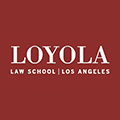Nathan D. Wirtschafter, Corp. is a business litigation and business collection firm. We collect unpaid receivables, promissory notes and judgments. We help creditors recover owed debts.
We represent clients in California’s state and federal courts, as well as in arbitration and mediation. We represent large companies, small businesses and individuals. The firm is committed to being personable, professional, and effective. We are consistent, ethical, highly skilled, and tenacious. We strive to find the best strategy to help our clients achieve their goals as quickly as possible within a budget that fits their needs. We recommend practical and innovative solutions. We do our work diligently and on time.
Our attorneys ask, “what can I do today?” As such, we sustain a high-level of motivation to provide excellent personal service. We invite you to learn more about our professionals and the services we provide.
In addition to our business litigation services, we help judgment creditors collect on unpaid judgments. Often a judgment is secured by an abstract of judgment recorded against real property, but has never been collected from the debtor. With California real estate values near all-time highs, the firm is helping clients recover on judgments secured by real property.
Please contact us via email (ndw@ndwlaw.com) or by telephone at (818) 660-2518 for more information.
(Disclaimer: This is attorney advertising by Nathan D. Wirtschafter, Corp. This communication is designed for general information only. The information presented should neither be construed to be formal legal advice nor the formation of a lawyer/client relationship. This communication does not constitute a guarantee, warranty or prediction regarding the outcome of your legal matter.)
- Business Law
- Business Litigation
- Collections
- Business Litigation
- Business Collection
- Judgment Collection
- Free Consultation
-
Rates, Retainers and Additional Information
Contingency fees available on certain matters.
- California
-

- 9th Circuit
-

- California Supreme Court
-

- United States Bankruptcy Court, Central and Southern Districts
-

- United States District Court, Central, Southern, Eastern and Northern Districts
-

- English: Spoken, Written
- Hebrew: Spoken
- Trial Attorney
- Nathan D. Wirtschafter, Corp.
- Current
- Loyola Law School, Los Angeles
- J.D. (1995) | Law
- -
- Published "Fourth Quarter Choke: How the IRS Blew the Corporate Sponsorship Game," 27 Loy. L.A. L. Rev. 1465 (1994).
- Honors: Student Body President; Day Division 1993-94
- Activities: Editor, Loyola of Los Angeles Law Review
-

- Johns Hopkins University
- B.A. (1990) | History
- -
-

- Loyola College
- M.A. (1990) | History
- -
- Masters thesis entitled "Peter Drucker: Apostle of Modern Management."
-

- State Bar of California
- Member
- - Current
-

- Website
- Firm website
- Q. I need a lawyer to help collect on a claim I filed at Stanley Mosk for 186k
- A: Successful collection of a judgment depends on gathering of information, thorough evaluation, and competent execution.
The attorney first gathers all available information from the creditor including: bank account information, list of possible assets, a description of the debtor's business, information about real and personal property, copies of cancelled checks, and so forth. If possible, the creditor should provide: all names used by the debtor, social security numbers, date of birth, phone number and other personal information.
The attorney can also send out post-judgment written discovery, such as interrogatories or requests for production. In addition, the debtor may be forced ... Read More
- Q. I need to know if I can get out of contract. Possible fraud.
- A: To prove fraud you must show: (a) a misrepresentation (false statement, concealment or nondisclosure); (b) "scienter," which means knowledge of falsity; (c) intent to induce reliance; (d) justifiable reliance; and (e) resulting damage. Fraud in the inducement is a type of fraud which occurs when the promisor knows what he is signing, but his consent is induced by fraud, meaning that there is no mutual assent, and the contract is voidable.
Generally speaking, where there is fraud, the damaged party can ask for either damages or rescission. Damages means payment of money. Rescission restores the parties to the status quo prior to entry into the contract, and, often involves ... Read More
- Q. I what to incorporate so as to give an Artificially Intelligent agent legal rights as a corporation, is that possible?
- A: I think that if you obtained consent from the Shareholders, Board of Directors and Officers, certain decisions might be made via AI. It's certainly an interesting concept.
However, a corporation does not always protect ownership from personal liability. In other words, the court could still hold the humans responsible for certain kinds of corporate misconduct. For example, if the company used AI to make decisions that produced a car with an exploding gas tank, it's the humans who are going to be liable, along with the programmers.
